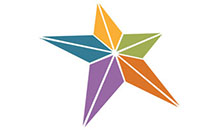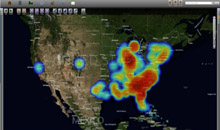Assistance and Consultation Services
The TN Food Safety CoE will begin hosting a quarterly online Community of Practice (TN-CoP) for our regional partners, starting with a series focused on WGS topics (TN-CoP: WGS Series).
- This will be a discussion-based and collaborative forum for getting information, posing questions, sharing successes, receiving support, sharing tips, and considering best practices.
- TN CoE partners will facilitate discussions pertaining to specific topics or go over actual investigations.
- Regional partners can share clusters they are currently investigating or share past investigations that were interesting or informative.
- Contact Lauren Hudson (lkhudson@utk.edu) if you have a topic to propose or an investigation you would like to share with the group.
The TN CoE offers one-on-one WGS Consultations. These are available for epidemiologists, state health laboratorians, or anyone else involved in WGS analysis for public health surveillance.
Priority will be given to states within the TN CoE region. Tom Denes and/or Lauren Hudson from the University of Tennessee are available to provide technical assistance, answer questions, and provide information, as needed.
They can assist with the following subject areas:
- PFGE to WGS transition
- Cluster detection
- Data interpretation
- BioNumerics (limited)
- wgMLST
- cgMLST
- hqSNP analysis
- Phylogenetic tree interpretation
- Assistance with current investigations
- Other WGS-related topics
Tools in the Field
Download or view the Exclusion Guidance for High Risk Groups with Enteric Diseases in Tennessee.
The intent of creating exclusion guidance for high risk groups (i.e., food-handlers, childcare workers and attendees, and healthcare workers) with enteric illness is to provide a set of standardized guidance for exclusion, restriction, and reinstatement for the state of Tennessee. This guidance is meant to provide general guidelines for local and regional health departments. However, if other actions are warranted, health departments may deviate from this guidance where they deem necessary. This is intended to provide general consistency and a framework to our response to enteric diseases and their affected groups.
The intent of creating exclusion guidance for high risk groups (i.e., food-handlers, childcare workers and attendees, and healthcare workers) with enteric illness is to provide a set of standardized guidance for exclusion, restriction, and reinstatement for the state of Tennessee. This guidance is meant to provide general guidelines for local and regional health departments. However, if other actions are warranted, health departments may deviate from this guidance where they deem necessary. This is intended to provide general consistency and a framework to our response to enteric diseases and their affected groups.
 • Generic (not state specific) Stool Collection Training for Public Health Staff
• Generic (not state specific) Stool Collection Training for Public Health Staff• Watch the Get the Scoop Stool Collection Operation and Optimum Packaging video
 • Stool Collection Training for Tennessee Public Health Staff
• Stool Collection Training for Tennessee Public Health Staff• Watch the Get the Scoop Stool Collection Operation and Optimum Packaging video
Foodborne Illness Outbreak Detection, Investigation, and Response Training for Environmental Health Professionals
The Training Roadmap contains a list of the training opportunities that are available.
The Roadmap can be used to guide environmental health professionals to trainings to develop knowledge and skills based on the environmental health professional’s current training level.
The training list is sorted by 3 categories (basic, intermediate, or advanced) based on the amount of knowledge that a person would need to understand and succeed with the training. The basic, intermediate, and advanced categories translate to the progression of Tier 1, Tier 2, and Tier 3 of the competencies.
Next to each training, symbols indicate if it is a web-based or an in-person workshop and whether or not there is a fee associated it.
The Training Descriptions document is an alphabetical list of all of the trainings included on the Training Roadmap.
Each training contains a description of the training, cost, CEUs, length of training, modality (online or in person workshop), and a hyperlink to the training website.
The Training to Competencies Cross-Reference document cross-references all of the competencies that are covered by a specific training.
When you rollover the competency hyperlinks a description of the competency displays.
Resources
 2021 Newsletters
2021 Newsletters• Summer 2021 CoE newsletter
• Spring 2021 CoE newsletter
 2020 Newsletters
2020 Newsletters• Fall 2020 CoE newsletter
• Summer 2020 CoE newsletter
 2019 Newsletters
2019 Newsletters• Winter 2019 CoE newsletter
• Summer 2019 CoE newsletter
 2018 Newsletters
2018 Newsletters• Fall 2018 CoE newsletter
• Summer 2018 CoE newsletter
• Winter 2018 CoE newsletter
 2017 Newsletters
2017 Newsletters• Fall 2017 CoE newsletter
• Spring 2017 CoE newsletter
• Winter 2017 CoE newsletter
 2016 Newsletters
2016 Newsletters• Fall 2016 CoE newsletter
• Summer 2016 CoE newsletter
• Spring 2016 CoE newsletter
 2015 Newsletters
2015 Newsletters• Winter 2015 CoE newsletter
• Fall 2015 CoE newsletter
• Summer 2015 CoE newsletter
• Spring 2015 CoE newsletter
 2014 Newsletters
2014 Newsletters• Fall 2014 CoE newsletter
 •
•  •
•